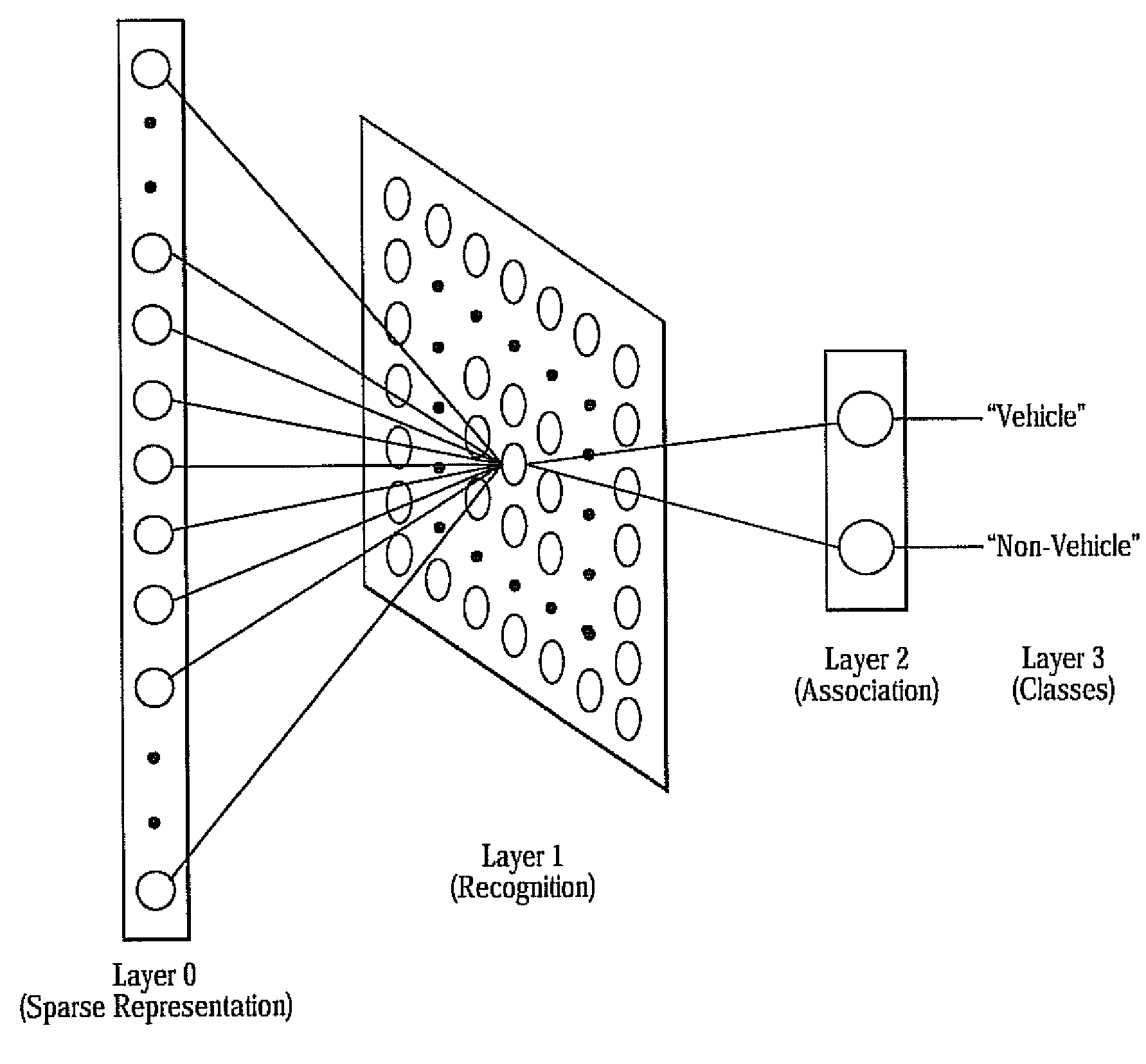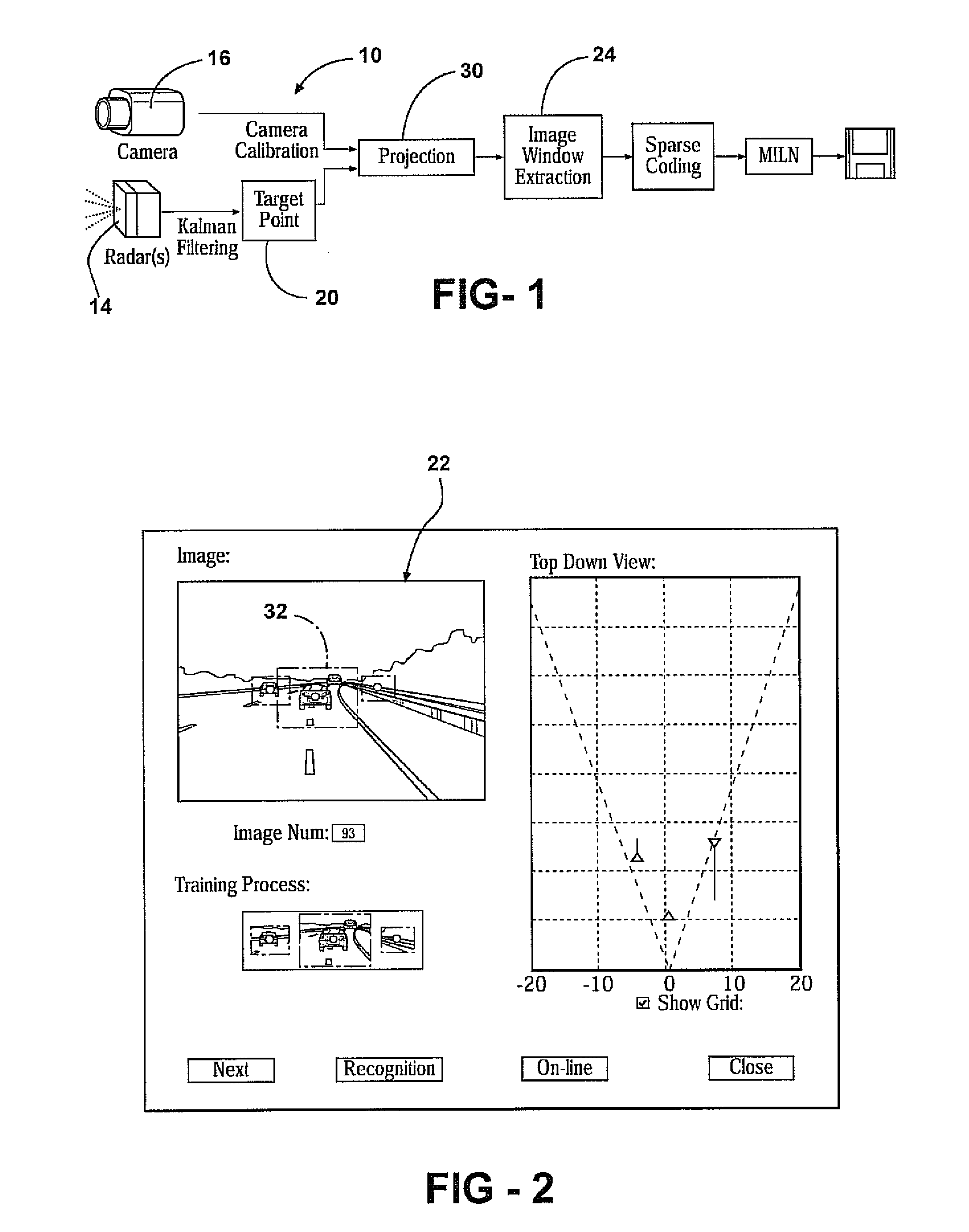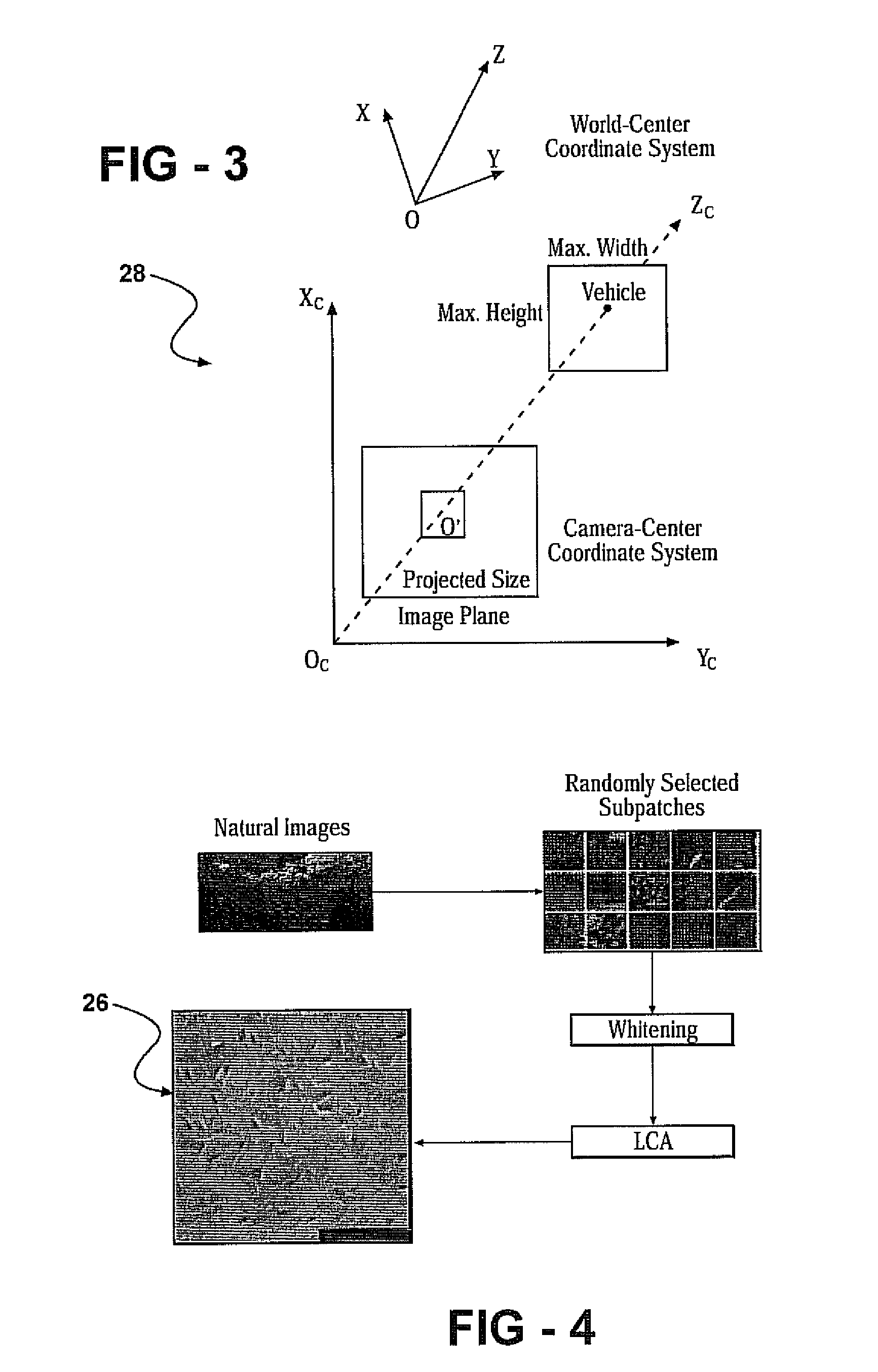Method and system of sparse code based object classification with sensor fusion
a sensor fusion and object classification technology, applied in the field of methods and systems of sparse code based object classification with sensor fusion, can solve the problems of imposing a huge burden on the system, not teaching the use of orientation selective filters for object classification, and the amount of patterns and processes
- Summary
- Abstract
- Description
- Claims
- Application Information
AI Technical Summary
Benefits of technology
Problems solved by technology
Method used
Image
Examples
Embodiment Construction
[0018]With reference to FIG. 1, a system 10 and method 12 for object classification based upon the fusion of a radar system 14 and a natural imaging device 16 using sparse code representation 18 is provided. Specifically, the system 10 fuses radar return 20 with associated camera imaging 22, and the fused data 24 is then transformed into a sparse code representation 18 and classified. The camera image of the radar return 20 is isolated, extracted and filtered with the help of orientation-selective filters 26. Processing of local receptive fields embedded onto the extracted image by orientation-selective filters 26 results in a sparse code for the image. The sparse code representation 18 of the object on the image is compared to known sparse code representations 18 of a particular object class. The processing and comparison of any subsequent sparse code representation 18 of images is done in an associative learning framework.
[0019]Thus, the video image of the object detected by the r...
PUM
 Login to View More
Login to View More Abstract
Description
Claims
Application Information
 Login to View More
Login to View More - R&D
- Intellectual Property
- Life Sciences
- Materials
- Tech Scout
- Unparalleled Data Quality
- Higher Quality Content
- 60% Fewer Hallucinations
Browse by: Latest US Patents, China's latest patents, Technical Efficacy Thesaurus, Application Domain, Technology Topic, Popular Technical Reports.
© 2025 PatSnap. All rights reserved.Legal|Privacy policy|Modern Slavery Act Transparency Statement|Sitemap|About US| Contact US: help@patsnap.com



